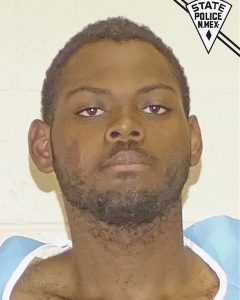GARDNER — State Senator Tim Hudson of Gardner came from pioneer stock. His father, Joshua Bains Hudson, was born in Maryland in 1831 and immigrated to Huerfano County in 1865. He settled near the junction of Muddy Creek and the Huerfano River. After a few years on the frontier, Hudson sent for his family back east. His mother, wife and three children took the railroad to Cheyenne, the closest station, where he met them and escorted them on to Huerfano County. Timothy McClure Hudson was the first of the couple’s children to be born in Colorado, in 1870. On the other hand, Joshua’s mother, Dollie Hudson, was the first to be buried in the Gardner Cemetery, adjacent to the family ranch house, about 1874. J.B. likely donated the land for the graveyard. The elder Hudson was active in community affairs. He was instrumental in establishing the first school and church, and may have been the first in the area to plant alfalfa. He was a county commissioner in the 1870s. By 1893, his flour mill was well established and well patronized by the farmers of the Huerfano Valley.
Tim was active in community affairs as well, but his community was larger than his father’s. As a youth, he spent his days chasing cattle for his father. During the summers, the family maintained a cow camp where Singing River Ranch was later built. Tim’s first venture into the business world was in Pueblo, but when his father purchased a general mercantile store in Gardner in 1891, he returned to manage it. Tim married Addie Viola Cropsey June 3, 1896. A poet, Addie was the daughter of Mary A. “Mollie” Cropsey, the widowed daughter of D.S. Smith. Mary remarried Dec. 31, 1885, to George J. Ingraham, a rancher of the Bradford area northwest of Gardner. After Tim and Addie’s marriage, she joined the work force at the store, as did her mother. In the late ‘90s, the sales force numbered four or five, and Mollie became Gardner postmaster in 1899. The post office was in the rear section of the store. Tim’s brother Josh also joined the business. While George concentrated on horse trading, Mollie bought a share of the store and it became known as the Hudson-Ingraham Mercantile Company. She had purchased the house next door west to the store and Tim built a home between the two. An old time resident of Gardner said, “Tim took part and led anything that would improve the valley:” What these endeavors were is unknown, but he did place the first telephone in the community, between the family homes and store. This was quite a novelty and all the neighbors came to use the new instrument. The installation proved so popular a telephone company was formed, and Mollie Ingraham became the switchboard operator. The office was first located in the store, but moved into the former Dick Miller saloon next door to the east when it outgrew its quarters. By 1907, the lines had been extended to offer service to residents around Malachite. The next innovation was the Delco plant Tim had installed in the store around the turn of the century. It may have been the first place in Gardner to be electrified. The Hudson-Ingraham store was a full service facility, carrying patent medicines, shoes, clothing, groceries, fabrics (“yard goods”), tinware, hardware, kitchen utensils, building supplies and farm machinery and tools. It included an ice house and potato cellar. A millinery department was opened in 1908, and a grain elevator in 1915. Once cars invaded the upper Huerfano, one could get his Model T repaired here. The store’s many counters and shelves surrounded an old fashioned woodstove that became the community gathering place on cold mornings. Tim bought himself an automobile in the summer of 1910, which may have been the first in town. In 1909, Tim was a co-founder of the Guaranty State Bank in Walsenburg and served as director and one-time president of the board. He remained with the bank until the later 1930s (it merged with First National in 1943). Around 1912, Tim bought a share of the Walsenburg Independent. In 1918 he and Ralph Stanley, another stockholder, had a strong reaction to their editor’s opinions and attempted to block him from entering the office by changing the locks. The editor simply broke in and continued his irritating ways. Tim and Addie had moved into the city to oversee their investments. After 1920, he became district court clerk. The store in Gardner shifted to the able management of brother Josh. Through the years, Josh entered into partnerships with the Meyer family and a “Mr. Redman”. In November 1924, Tim was elected state senator. His entire platform was to get the old Mosca Pass route, which connected Gardner to the San Luis Valley, reopened and made into a state road. This was not a success and he served out his four year term and retired from the senate to return to his Walsenburg business interests. Meanwhile, Addie had become a bit of a celebrity herself. Her poems, such as “Other Men’s Dogs” and “The Homemade Cigarette” were selling well. She published a book of her poetry called Land Where the Cowboy Grows. At one point she was referred to as “the poet laureate” of Colorado, but it was an unofficial title (as in the case of John Denver). Her poetry transcended time when one poem was chosen the Vintage Poem of the Month in 2008. Some of her works are also popular with today’s cowboy poets. In 1933, Tim had disassociated himself with the Gardner store. Molly Ingraham had died in 1930, leaving Josh with the store, now entitled the J.B. Hudson Mercantile. The Agnes brothers, Nick and Bill of Walsenburg, bought in and the store became Hudson-Agnes, then the Agnes Mercantile when Josh Hudson retired. This store lasted until 1954, when Bill retired after 25 years. The store went into a decline but in 1975 was resurrected as simply The Agnes. The Agnes harkened back to earlier days by offering many services. It had a coffee shop, groceries and convenience items and was one of Gardner’s five gas stations of the ‘70s. It even had a carry-out beer license. The Agnes was a popular gathering spot for goods and gossip until an early morning fire on Dec. 14, 1988 totally destroyed the old frame building during a snowstorm. It had passed through numerous ownerships in its last 13 years. It was not just the end of an era, but the end of a 100-year run for the building. Addie Hudson died in 1949. Tim retired and, in his later years, lived with Dr. John and Edna Wright in the old Costello Hotel they had converted to a sometime hospital. The Wrights’ care must have been beneficial because Tim Hudson was 93 years old when he died in 1963.




